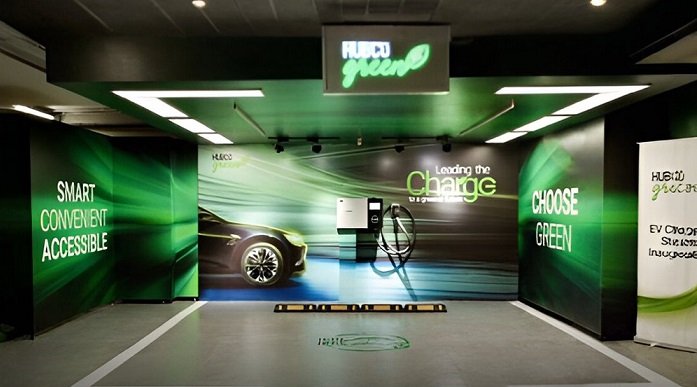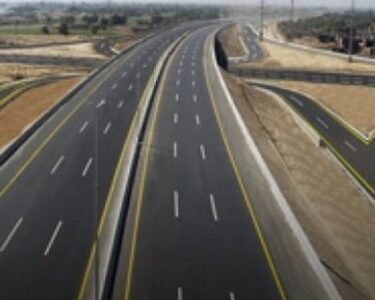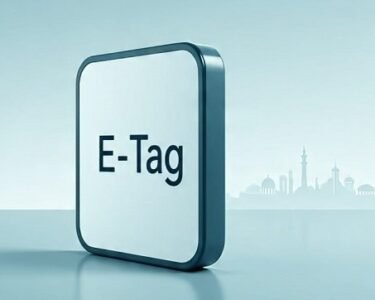Pakistan is making significant strides toward sustainable transportation by expanding electric vehicle (EV) infrastructure and promoting eco-friendly transport solutions. In a recent directive, the Lahore High Court (LHC) ordered the installation of EV charging stations at all fuel stations as part of efforts to combat smog and environmental pollution. This move aligns with the government’s broader initiative to reduce carbon emissions and promote clean energy solutions.
LHC Directives on EV Infrastructure and Smog Control
Mandatory EV Charging Stations at Fuel Stations
The Lahore High Court (LHC) has mandated the installation of EV charging stations at all petrol pumps and fuel stations across Pakistan. This decision aims to create a more accessible charging network for electric vehicles, encouraging a shift away from fossil fuels.
Incentives for Electric Rickshaws
Recognizing the impact of petrol-powered rickshaws on urban pollution, the LHC has also called for an incentive program to convert traditional rickshaws to electric ones. This initiative is expected to reduce emissions in densely populated areas and promote cleaner public transport.
Parking Facilities and Public-Private Partnerships
To accommodate the increasing number of EVs, the court has instructed authorities to establish parking facilities under a public-private partnership. This move aims to ease traffic congestion while providing designated spaces for EV charging.
Government Initiatives to Boost EV Adoption
40 EV Charging Stations Along Motorways
The government has approved 40 EV charging stations along Pakistan’s motorway network, primarily catering to electric two- and three-wheelers. These stations will play a crucial role in expanding EV adoption, especially for daily commuters.
- The initial power rate for EV charging stations is set at Rs. 39.75 per unit.
- The National Highway Authority (NHA) has designated service areas every 120 km from Peshawar to Karachi as potential sites for these stations.
- Oil marketing companies (OMCs) have shown interest in providing power connections for these stations, with construction expected to begin within three months.
Financing Support for EV Buyers
To make EVs more accessible, the Pakistan Banks Association (PBA), led by Zafar Masud, has proposed a financing plan for EV adoption.
- Banks are encouraged to offer EV loans at Kibor plus 3%, with recommendations to cap it at Kibor plus 2.5%.
- A 70:30 debt-to-equity ratio has been suggested, aligning with State Bank of Pakistan (SBP) guidelines.
- The Industries Ministry is also pushing for insurance coverage for EVs, particularly for battery theft protection.
Long-Term Goals: Expanding EV Charging Infrastructure
Target of 10,000 Charging Stations by 2030
Pakistan has set an ambitious goal of installing 10,000 EV charging stations by 2030. This initiative is part of the government’s commitment to reducing fuel dependency and cutting down carbon emissions.
Upcoming Second EV Policy
A new Electric Vehicle Policy is expected by November 30, 2024. This policy will provide a comprehensive framework for:
- EV infrastructure development
- Manufacturing incentives
- Consumer benefits
- Investment opportunities for the private sector
Private Sector Investments in EV Charging
The private sector is playing a crucial role in enhancing Pakistan’s EV charging network. Both domestic and international investors are working with the government to establish a fast-charging network for both passenger vehicles and commercial fleets.
Conclusion: A Greener Future for Pakistan’s Transportation
With the LHC’s directives and government-backed initiatives, Pakistan is on track to accelerate its transition to electric mobility. By expanding EV charging stations, incentivizing electric rickshaws, and fostering public-private partnerships, the country is laying the foundation for a cleaner, greener, and more energy-efficient future.
As Pakistan moves towards sustainable transportation, these developments will not only reduce smog and carbon emissions but also boost the local EV industry, making electric vehicles a more practical and widely accepted choice for everyday commuters.






